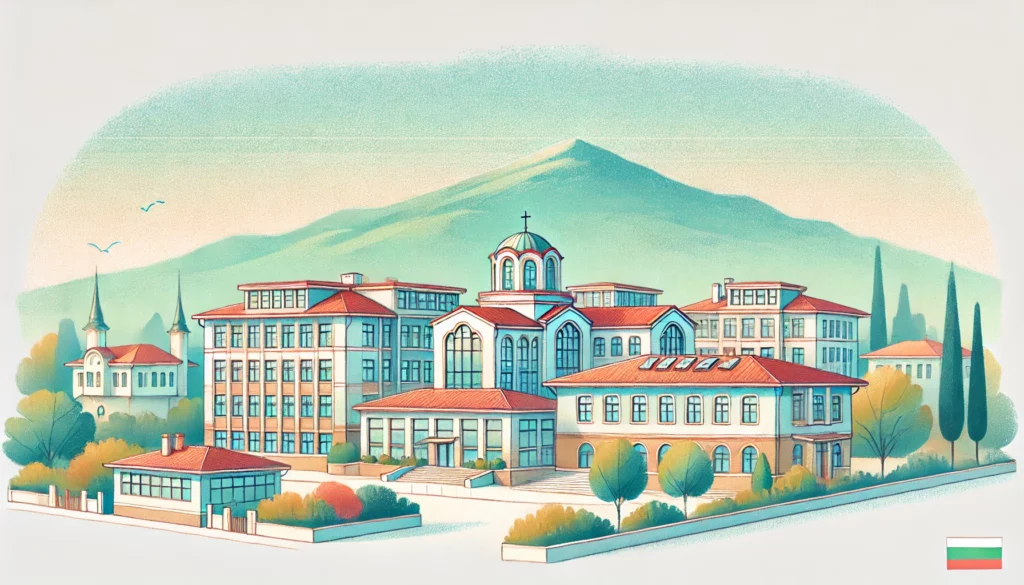A Comprehensive Guide to Teaching in International Schools in Bulgaria
For educators seeking to broaden their horizons, teaching in international schools in Bulgaria presents a unique and fulfilling opportunity. This Eastern European nation, celebrated for its rich cultural heritage, breathtaking landscapes, and welcoming populace, has witnessed a notable expansion in the international education sector, catering to both local and expatriate students.
Overview of the International School Landscape in Bulgaria
The establishment of international schools in Bulgaria began in the early 1990s, marking the inception of a sector that has since flourished. Currently, over 30 international schools operate within the country, serving a diverse student body comprising children from more than 60 nationalities.
These institutions implement a variety of international curricula, including the International Baccalaureate (IB), British, American, and other European educational systems. This curriculum diversity not only enriches the educational experience but also provides a broad spectrum of teaching opportunities for educators with varied backgrounds and specializations.
Geographical Distribution of International Schools
The majority of international schools are situated in Sofia, the capital city, which offers a dynamic blend of contemporary amenities and historical sites, making it an attractive location for educators. Additionally, international schools can be found in other significant urban centers such as Plovdiv and Varna, as well as in popular tourist regions like Bansko and Sunny Beach.
Institutional Size and Facilities
International schools in Bulgaria vary significantly in size, ranging from small institutions with a few hundred students to larger establishments accommodating over a thousand pupils. Regardless of their size, these schools typically provide excellent facilities, including:
- Modern classrooms equipped with advanced technology
- Well-resourced science laboratories
- Extensive libraries
- Comprehensive sports facilities
- Dedicated spaces for the arts, including theaters and studios
Such facilities reflect a commitment to holistic education, ensuring that students receive a well-rounded learning experience.
Navigating the Job Market in Bulgaria’s International Schools
Securing a teaching position in an international school in Bulgaria can be competitive; however, understanding the requirements and presenting oneself as a strong candidate can enhance prospects significantly.
Typically, international schools seek candidates who possess:
- A bachelor’s degree in education or a related field
- A recognized teaching qualification from their home country
- Experience in international education or familiarity with the specific curriculum offered by the school
Application Procedure
Vacancies are commonly advertised on school websites and international teaching job boards. The application process generally involves:
- Submitting a comprehensive CV and a tailored cover letter
- Participating in an interview, which may be conducted virtually for overseas applicants
Compensation and Benefits
While salaries for teaching positions in Bulgaria may not match those in some other international markets, they are generally competitive when evaluated against the local cost of living. Many institutions offer attractive benefits packages, which may include:
- Housing allowances
- Health insurance
- Reimbursement for travel expenses
- Tuition discounts for the children of teachers
Living and Working in Bulgaria: An Overview
Teaching in Bulgaria provides more than mere employment; it offers an opportunity to immerse oneself in a distinctive culture and lifestyle. Educators can engage in various activities, from exploring historical sites to enjoying the local cuisine.
The cost of living in Bulgaria is relatively low compared to many Western nations, allowing educators to maintain a comfortable standard of living. Essential expenses such as housing, groceries, and dining are reasonably priced.
Language Considerations
While Bulgarian is the official language, English is widely spoken, particularly in urban and tourist areas. However, acquiring basic Bulgarian language skills can facilitate deeper connections with the local community.
Climate Overview
Bulgaria experiences a continental climate characterized by hot summers and cold winters. The country is renowned for its picturesque autumn foliage and vibrant spring blossoms, contributing to its appeal as a year-round destination.
Conclusion
Teaching in international schools in Bulgaria offers a rewarding and enriching experience. It provides educators with the opportunity to work in a dynamic, multicultural environment while exploring a country rich in history and culture.
For educators seeking a new challenge, Bulgaria may represent the beginning of an exciting chapter in their professional journey.
Enhance Your International Teaching Career with IPGCE
Are you ready to elevate your teaching career in Bulgaria and beyond? Join IPGCE, the leading Teacher Training Course in the UK, designed to help educators overcome barriers to international education. Our International Postgraduate Certificate in Education enhances your qualifications, increases your interview prospects, and accelerates your career progression. By enrolling in our program, you will connect with a global network of professionals, gain insights into international curricula, and benefit from the flexibility of online study. Do not let inadequate credentials or isolation hinder your potential. Seize the opportunity for professional growth and a significant salary increase. Enroll in the UK’s premier Teacher Training Course today and embark on the next phase of your international teaching career.

